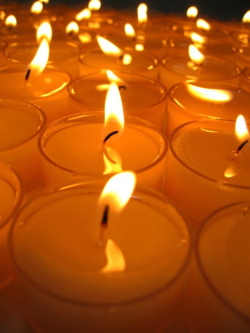
Mar 24, 2016 | Non categorizzato
 “The orientation of the Gospel of St. John, and also the others, converge in the phrase which has lately taken on a deep and infinite meaning for me: “That they all be one, as you Father are in me and I in you, so that the world may believe.” (John 17,21). This is how we should live. […] These are the coordinates of the unity that is particularly dear to me: unity in our parishes, unity in the various services and ministries, unity between the clergy and the laity, and between presbyteries. Unity becomes credible only if it demonstrates that we are not the patrons, but that only He is the Lord. This unity in the context of priestly ministry is something I particularly hold dear. Likewise I must mention unity of the Church, unity with those who are outside the confines of our Roman-Catholic Church, unity among all those who identify themselves with faith in the only God, the Living God and, therefore, with the Jews and Muslims. That unity between the Church and society is where one does not run parallel to or contrast with the other, but where the Church and society enter into a mutual relationship, bringing to light that unity which God gives for leavening society, with that leaven which makes man free. It is unity that makes man fully man, since he can become man in the full sense only where God has the right to be fully God, and thus can endow us with all He wishes to give us. And He wants to give us nothing less than His intimate mystery: Trinitarian unity. But this is not a simple plan, since we do not progress much only with plans. Instead it has to become life […]. Also I have to start living this unity. It is due to this that I trust the fact that all of you dear brothers and sisters can help me, and that we can do so mutually.” Bishop Klaus Hemmerle Cited from: W. Hagemann, Klaus Hemmerle. Innamorato della Parola di Dio. (In love with the Word of God), Città Nuova ed., Roma 2013, pp. 337-338
“The orientation of the Gospel of St. John, and also the others, converge in the phrase which has lately taken on a deep and infinite meaning for me: “That they all be one, as you Father are in me and I in you, so that the world may believe.” (John 17,21). This is how we should live. […] These are the coordinates of the unity that is particularly dear to me: unity in our parishes, unity in the various services and ministries, unity between the clergy and the laity, and between presbyteries. Unity becomes credible only if it demonstrates that we are not the patrons, but that only He is the Lord. This unity in the context of priestly ministry is something I particularly hold dear. Likewise I must mention unity of the Church, unity with those who are outside the confines of our Roman-Catholic Church, unity among all those who identify themselves with faith in the only God, the Living God and, therefore, with the Jews and Muslims. That unity between the Church and society is where one does not run parallel to or contrast with the other, but where the Church and society enter into a mutual relationship, bringing to light that unity which God gives for leavening society, with that leaven which makes man free. It is unity that makes man fully man, since he can become man in the full sense only where God has the right to be fully God, and thus can endow us with all He wishes to give us. And He wants to give us nothing less than His intimate mystery: Trinitarian unity. But this is not a simple plan, since we do not progress much only with plans. Instead it has to become life […]. Also I have to start living this unity. It is due to this that I trust the fact that all of you dear brothers and sisters can help me, and that we can do so mutually.” Bishop Klaus Hemmerle Cited from: W. Hagemann, Klaus Hemmerle. Innamorato della Parola di Dio. (In love with the Word of God), Città Nuova ed., Roma 2013, pp. 337-338

Mar 24, 2016 | Non categorizzato
 |
“Looking at this profoundly wounded world, unity and peace might seem just a dream.
May the power of the Risen Lord, who overcame death, every death, forever, strengthen in us the boldness to believe, hope and act so that fraternity may become the norm for shared living between different cultures and peoples.
I wish you all a Happy Easter, with the Risen Jesus in our midst!”
Maria Voce (Emmaus)
|
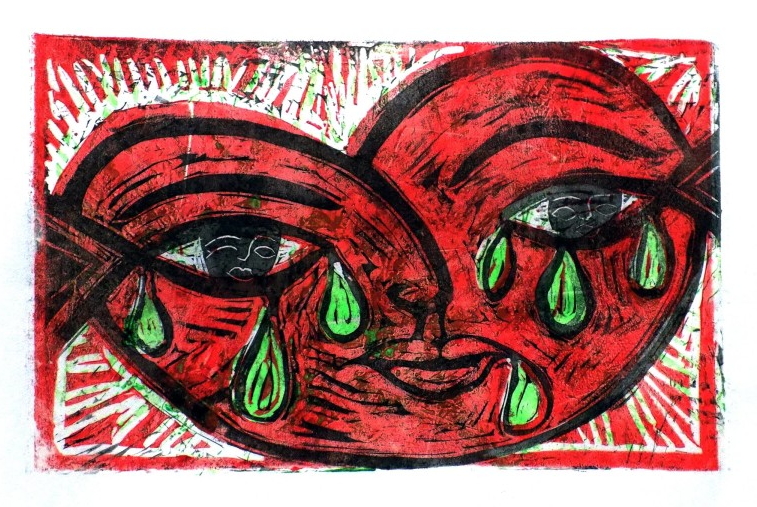
Mar 23, 2016 | Focolare Worldwide

“A Bruxelles, Dieu pleure avec nous” © Michel Pochet

Mar 23, 2016 | Non categorizzato
 God weeps with us in Brussels I was there on that Tuesday morning in Brussels
God weeps with us in Brussels I was there on that Tuesday morning in Brussels
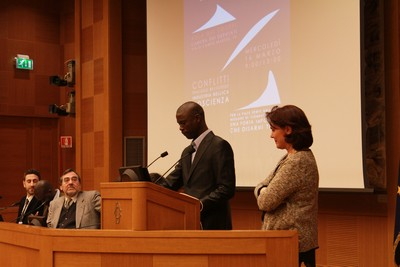
Mar 23, 2016 | Focolare Worldwide, Senza categoria
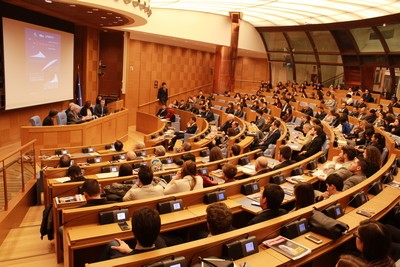 Faced with the increasingly untenable situation of widespread armed conflict, large fringes of civil society continue to make noise in an effort to curb the actions of governments that with their choices support arms trafficking, which is identified as one of the causes that prevents resolutions to the conflicts. The Political Movement for Unity has long been engaged on this issue. Through its Città Nuova, the Political Movement for Unity and especially its schools on participation in politics, it continues to expose the involvement of Italy in the production of war. The country, in fact home to strategic military bases, continues to produce high-tech weapons that also arrive in Middle Eastern countries, as reported by Città Nuova. Bombs are transited from the ports of Sardegna destined for Saudi Arabia, a country interested in the Syrian conflict and driving a coalition committed to the war in Yemen, with thousands of victims and condemned by the UN.
Faced with the increasingly untenable situation of widespread armed conflict, large fringes of civil society continue to make noise in an effort to curb the actions of governments that with their choices support arms trafficking, which is identified as one of the causes that prevents resolutions to the conflicts. The Political Movement for Unity has long been engaged on this issue. Through its Città Nuova, the Political Movement for Unity and especially its schools on participation in politics, it continues to expose the involvement of Italy in the production of war. The country, in fact home to strategic military bases, continues to produce high-tech weapons that also arrive in Middle Eastern countries, as reported by Città Nuova. Bombs are transited from the ports of Sardegna destined for Saudi Arabia, a country interested in the Syrian conflict and driving a coalition committed to the war in Yemen, with thousands of victims and condemned by the UN. 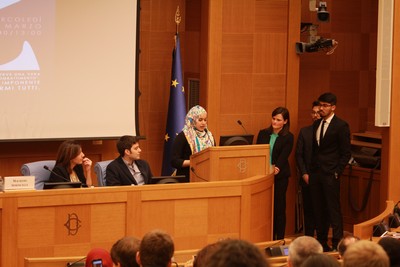 What to do then? A year of work accompanied by experts of international geopolitics, led to the drafting of an appeal made of concrete demands, presented to the deputies and senators available: • Respect for 185/90 Law, concerning the “export control, import and transit of military goods.” In particular, it asks for the termination of exportation and transiting on the national territory to direct weapons to countries in conflict or who are committing serious human rights violations. • The allocation of funds for the conversion of the military industry into civil purposes, with reference to the provisions in Art.1 paragraph 3 of the 185/90 Law. • Transparency and control of banking transactions related to imports, exports and the transit of arms. To these were also added the request for the insertion of the themes of integration and welcome in the political agenda, and the investment of more resources in international cooperation. The youth promoters of the March 16th Meeting are well aware of the powers that be and the apparent judgment, even benevolent, of naivety that accompanies their concerns, but, as they say: “We believe we have a responsibility, due precisely to the ideals that motivate us, and therefore we cannot be silent or passive as we look at the world around us. We work in our daily lives to build fraternity and that is where we begin from in engaging governors.” The reflection in Parliament was enriched by the contributions of Pasquale Ferrara, diplomat and university professor Interrnational Relations; Shahrzad Houshmand, Islamic theologian who teaches at the Pontifical Gregorian University; Michele Zanzucchi, director of Città Nuova; and Professor Maurizio Simoncelli, co-founder of the Institute of International Disarmament Archival Research.
What to do then? A year of work accompanied by experts of international geopolitics, led to the drafting of an appeal made of concrete demands, presented to the deputies and senators available: • Respect for 185/90 Law, concerning the “export control, import and transit of military goods.” In particular, it asks for the termination of exportation and transiting on the national territory to direct weapons to countries in conflict or who are committing serious human rights violations. • The allocation of funds for the conversion of the military industry into civil purposes, with reference to the provisions in Art.1 paragraph 3 of the 185/90 Law. • Transparency and control of banking transactions related to imports, exports and the transit of arms. To these were also added the request for the insertion of the themes of integration and welcome in the political agenda, and the investment of more resources in international cooperation. The youth promoters of the March 16th Meeting are well aware of the powers that be and the apparent judgment, even benevolent, of naivety that accompanies their concerns, but, as they say: “We believe we have a responsibility, due precisely to the ideals that motivate us, and therefore we cannot be silent or passive as we look at the world around us. We work in our daily lives to build fraternity and that is where we begin from in engaging governors.” The reflection in Parliament was enriched by the contributions of Pasquale Ferrara, diplomat and university professor Interrnational Relations; Shahrzad Houshmand, Islamic theologian who teaches at the Pontifical Gregorian University; Michele Zanzucchi, director of Città Nuova; and Professor Maurizio Simoncelli, co-founder of the Institute of International Disarmament Archival Research.  At the root is the spirituality of Chiara Lubich, who saw the horrors of World War II in her own city of Trent, Italy, and throughout her life, through dialogue with people of different faiths and cultures, sowed seeds of peaceful coexistence. Chiara, just 28 year old, had also set foot in the Italian Parliament when she met Igino Giordani in 1948. “The hope is that young people can have an impact on the political agenda, as citizens of the present and the future”, says Silvio Minnetti, chairman of the Political Movement for Unity in Italy (MPPU). “Young people are asking us questions, challenging, demanding, and and those of us where are in political field want to welcome them, becoming directly engaged in their voting choices, but also by initiating a serious reflection in order to give substance to the answers.” In an attempt To affect the political agenda even more, the Political Movement for Unity in Italy is planning to organize a mutual listening and sharing workshop to be held in the Seat of the Italian Chamber of Deputies in the coming months, to discuss the young people’s Appeal. It will include the participation of parliamentarians, experts, young people and representatives of the Italian government. See also: Build peace each day (Full text of the Appeal in Italian)
At the root is the spirituality of Chiara Lubich, who saw the horrors of World War II in her own city of Trent, Italy, and throughout her life, through dialogue with people of different faiths and cultures, sowed seeds of peaceful coexistence. Chiara, just 28 year old, had also set foot in the Italian Parliament when she met Igino Giordani in 1948. “The hope is that young people can have an impact on the political agenda, as citizens of the present and the future”, says Silvio Minnetti, chairman of the Political Movement for Unity in Italy (MPPU). “Young people are asking us questions, challenging, demanding, and and those of us where are in political field want to welcome them, becoming directly engaged in their voting choices, but also by initiating a serious reflection in order to give substance to the answers.” In an attempt To affect the political agenda even more, the Political Movement for Unity in Italy is planning to organize a mutual listening and sharing workshop to be held in the Seat of the Italian Chamber of Deputies in the coming months, to discuss the young people’s Appeal. It will include the participation of parliamentarians, experts, young people and representatives of the Italian government. See also: Build peace each day (Full text of the Appeal in Italian)
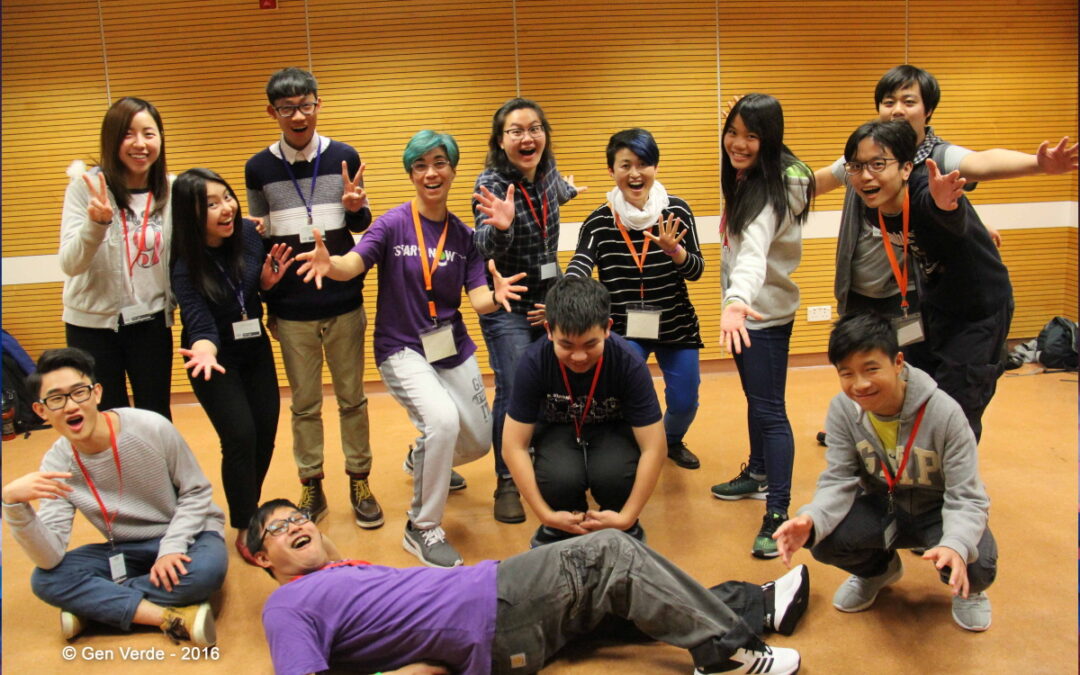
Mar 22, 2016 | Focolare Worldwide, Senza categoria
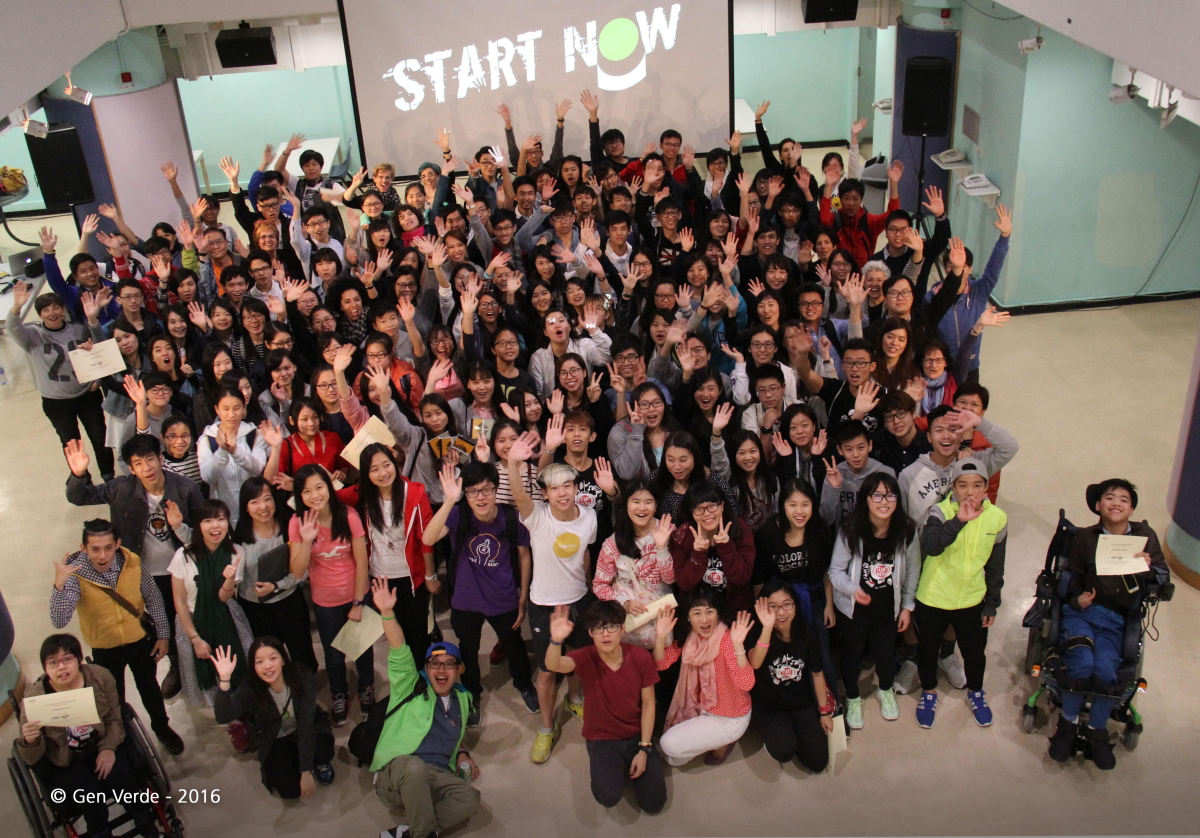 “It is the most beautiful and moving concert I have ever attended.” “Your music soothes the soul.” “I can no longer be indifferent to the world around me: I have to do something.” These are some of the impressions with which the audience expressed their enthusiasm for “On the other side,” the latest concert of the international band Gen Verde, given in Hong Kong, Macao and four cities of Taiwan (Haulien, Taipei, Kaoshiung and Taichung). Gen Verde is an international all-women band with members from 14 countries and four continents. They cover all the roles: authors, composers, musicians, dancers, lighting, video and sound technicians, management, etc. In theatres and stadiums filled to the brim with enthusiastic audiences, these women offer a programme interwoven with their own life stories, portrayed through music and drama, through which they give voice to their ideal of unity, presented as the key elements urging humanity to move towards universal brotherhood. Various pieces, complete with choreographies, unfolded to the rhythm of an engaging style of pop-rock music of various shades which all went to underpin this theme, while the backdrop projected significant key words, graphics and images of great historical impact.
“It is the most beautiful and moving concert I have ever attended.” “Your music soothes the soul.” “I can no longer be indifferent to the world around me: I have to do something.” These are some of the impressions with which the audience expressed their enthusiasm for “On the other side,” the latest concert of the international band Gen Verde, given in Hong Kong, Macao and four cities of Taiwan (Haulien, Taipei, Kaoshiung and Taichung). Gen Verde is an international all-women band with members from 14 countries and four continents. They cover all the roles: authors, composers, musicians, dancers, lighting, video and sound technicians, management, etc. In theatres and stadiums filled to the brim with enthusiastic audiences, these women offer a programme interwoven with their own life stories, portrayed through music and drama, through which they give voice to their ideal of unity, presented as the key elements urging humanity to move towards universal brotherhood. Various pieces, complete with choreographies, unfolded to the rhythm of an engaging style of pop-rock music of various shades which all went to underpin this theme, while the backdrop projected significant key words, graphics and images of great historical impact. 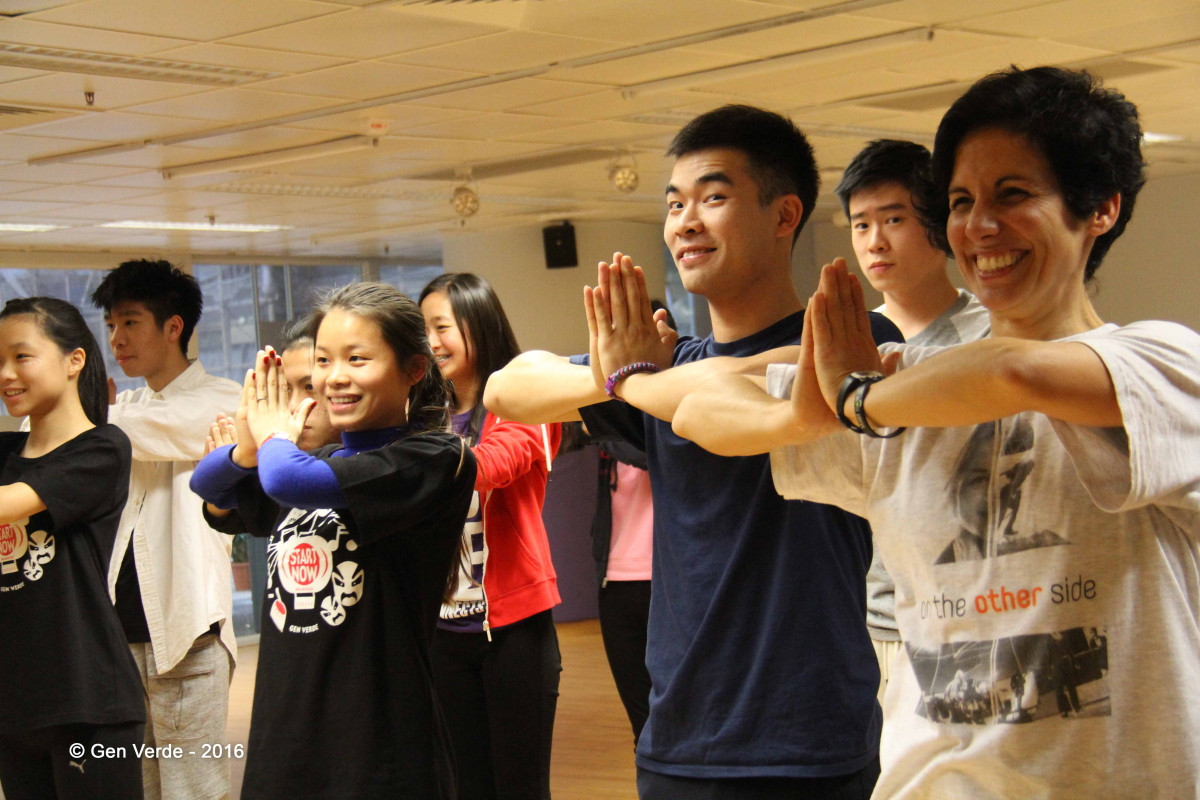 Since some pieces were presented in the local languages, the message came through loud and clear. In addition, in the days preceding the concerts, in three of these cities, the band involved the high school and university students in the “Start Now” project with the support of the local Focolare community. The universal language of music and the arts led the youth to undertake a dialogue beyond their differences, to build the show “together.” The fact was that, in every piece, participation and enthusiasm were so vital, that the workshop participants gave the same commitment as the artists in launching their message.
Since some pieces were presented in the local languages, the message came through loud and clear. In addition, in the days preceding the concerts, in three of these cities, the band involved the high school and university students in the “Start Now” project with the support of the local Focolare community. The universal language of music and the arts led the youth to undertake a dialogue beyond their differences, to build the show “together.” The fact was that, in every piece, participation and enthusiasm were so vital, that the workshop participants gave the same commitment as the artists in launching their message. 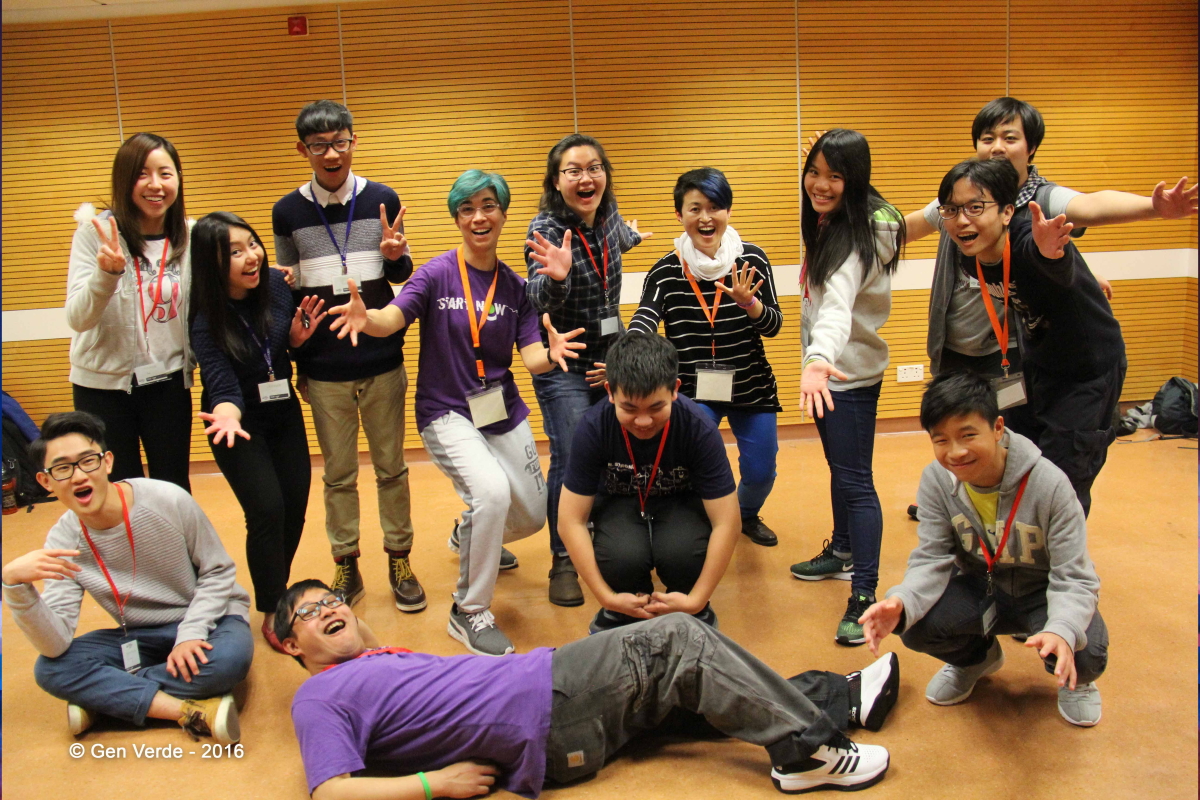 For Gen Verde, meeting the Asian youth was important, to see that also at this latitude, the expectations of the new generations are to share their experiences and move away from stereotyped images and give a mark of trust and altruism to their lives. “Many of them – a member of the group said – confided their difficulty in living in an extremely competitive society where they are always under pressure to excel. At the same time they demonstrated great sensitivity to the themes of the environment, peace and universal brotherhood, and dialogue with all.” “You have given us hope, courage, energy and enthusiasm,” one of them wrote to Gen Verde. And a girl said: “In all sectors we are pushed to be top of the class: instead we learned from you that we must follow our conscience and be true to ourselves.” A businessman said: “Looking at the young people this evening I would say, with youth like this, Hong Kong is saved!” After the rioting that a few days earlier had traumatized the city, the concert re-lit the fire of hope in him. To live for a united world wherever we are. This is the message that remains in the hearts of those who meet Gen Verde, whatever culture or creed they profess, because in each of them is imbued the conviction that together comes the strength to make the world a better place. See Photo gallery Hong Kong and Photo gallery Taipei
For Gen Verde, meeting the Asian youth was important, to see that also at this latitude, the expectations of the new generations are to share their experiences and move away from stereotyped images and give a mark of trust and altruism to their lives. “Many of them – a member of the group said – confided their difficulty in living in an extremely competitive society where they are always under pressure to excel. At the same time they demonstrated great sensitivity to the themes of the environment, peace and universal brotherhood, and dialogue with all.” “You have given us hope, courage, energy and enthusiasm,” one of them wrote to Gen Verde. And a girl said: “In all sectors we are pushed to be top of the class: instead we learned from you that we must follow our conscience and be true to ourselves.” A businessman said: “Looking at the young people this evening I would say, with youth like this, Hong Kong is saved!” After the rioting that a few days earlier had traumatized the city, the concert re-lit the fire of hope in him. To live for a united world wherever we are. This is the message that remains in the hearts of those who meet Gen Verde, whatever culture or creed they profess, because in each of them is imbued the conviction that together comes the strength to make the world a better place. See Photo gallery Hong Kong and Photo gallery Taipei
Mar 21, 2016 | Non categorizzato
March 5, 2016, Brescia, Italy At the Catholic University: “Paul VI And Chiara Lubich, The Prophecy Of A Church That Makes Itself Dialogue Conference,” organised in collaboration with Paul VI Institute in continuation of the “Make Dialogue Days” held in Castel Gandolfo during November 2014. Among the presenters: Archbishop Vincenzo Zani, Secretary of the Congregation for Catholic Education; Lucia Albignente, who is in charge of the historical sector of the Chiara Lubich Centre; Father Angelo Maffeis, president of Paul VI Institute; Franco Monaco, politician and journalist; Alberto Lo Presti, professor of Political Theory at Sophia University Institute. March 6, 2016, Vicenza, Italy “Beyond The Borders Interreligious Conference” at Centro A. Onisto – Borgo S. Lucia, 51. Speakers: Emeritus Bishop of Aleppo, Armando Bortolaso; Imam of the Islamich community of Veneto, Dr Kamel Layachi and Rita Moussallem from the Focolare’s Centre for Interreligious Dialogue. The event will conclude with a flashmob in Piazza dei Signori. March 6, 2016, Olomouc, Czech Republic At the Catholic Chancery, a Cultural programme on the figure of Chiara Lubich as a sower of peace, followed by the celebration of the Mass by Archbishop Jan Graubner in cathedral. March 8, 2016, Ischia, Italy At the island’s Multi-Purpose Auditorium, 19:30, an evening programme on Work & Neigborhood. Civil engineer, Patience Mollè Lobè and business owner, Antonio Diana will be among the presenters. The moderator will be Carlo Cefaloni, Città Nuova journalist and expert on workplace dynamics. March 11, 2016, Caserta, Italy Music, testimonies and theater, at the Reggia di Caserta, 19:30, a reflection on the life and thought of Chiara Lubich titled: “The great attraction of the modern time”. Through the collaboration of the Diocese and the Directors of the Reggia. March 11, 2016, Rosario, Argentina A meeting at the Catholic University of Argentina (UCA) will reflect on the influence of the charism of unity on education. Presenters include: Dr Nieves Tapia, Coordinator of the Latin American Centre for Service Learning (CLAYSS). March 11-12, 2016, Fontem, Cameroon Workshop with music, drawing, poetry and theatre on “Chiara and Peace” for the students of 20 schools that belong to the Peace Education Project. Awards for the best pieces and for significant gestures of peace by the students themselves. The event will also be attended by civil authorities, traditional and religious authorities. March 12, 2016, Garden Grove, USA At Christ Cathedral, Garden Grove, holy Mass celebrated by Bishop Kevin William Vann, from the Diocese of Orange. In the afternoon, at the Academy Gym, a meeting on multiculturalism with representatives from various religions and ethnicities. March 12, 2016, Caracas, Venezuela Presentation of Chiara Lubich as a builder of dialogue and peace, who was awarded the 1996 UNESCO Peace Prize. The event will take place at the Institute For Religious Education (ITER) with people from different Churches. March 12, 2016, Brasilia, Brazil At the Paulist University (UNIP), at 15:30, 1996 UNESCO Peace Prize to Chiara Lubich. Followed by three moments of reflection: building peace in our personal relationships; in the dialogue amongst churches and religions and, in collaboration with the Institute of Immigration and Human Rights (IMDH), with mirgrants and refugees. Entrance fee: 1 kg of food for Haitian immigrants. March 12, 2016, Todi, Italy Tenth anniversary of the conferment of honorary citizenship on Chiara Lubich, at 15:30, in the Council Hall: “A Humanised Economy”, which will reflect on the Economy of Communion Project that was conceived by Chiara Lubich. Besides the Mayor of the city, interventions will be made by the President of the Region of Umbria, Cardinal Ennio Antonelli, Dr Giuseppe Argiolas and two business owners: Andrea Cruciani and Antonio Baldaccini. March 12, 2016, Castel Gandolfo, Italy At the Mariapolis Centre (Via de La Salle), 17:30, a programme of reflection on “The Culture Of Dialogue As A Means Of Peace.” The invitation is extended to ecclesiastical and civil leaders, and to the general public. Besides numerous testimonies, the keynote address will be given by Focolare president, Maria Voce. March 12, 2016, Manfredonia, Italy The 7th Edition of the Manfrodian Chiara Lubich Brotherhood Prize. In attendance: Vera Baboun, Mayor of Bethlehem and Pasquale Ferrara, diplomat and Secretary General of the European University Institute of Florence. Info March 12, 2016, Milan, Italy “Me Through You” Event, highlighting how the search for peace brings us closer to others and to our true self. The event will take place in three half-hour sections, each in a different location and at different times so that everyone can attend all the sections: at the Basilica of Saint Ambrose; Daughters of Mary Help of Christians Institute; Gonzaga Institute. Info March 12, 2016, Sarajevo, Bosnia Herzergovina An Open Day at the School of Theology dedicated to Chiara Lubich: “The Message of Dialogue and Peace.” Participants include people of Christian confessions, other faiths and people with no religious affiliation. Archbishop of Sarajevo, Cardinal Vinko Pujic, will celebrate Mass in cathedral. March 12, 2016, Genoa, Italy In the Minor Council Hall of the Piazza Ducale, a discussion on the Encyclical Letter Laudato si’ during a programme titled: “Religions Dialogue For Peace And the Environment.” Presenters will include: President of the Islamic Community of Genoa, Huseim salah; Chief Rabbi of Genoa, Giuseppe Momigliano; Buddhist monk, Gnanathilaka Mahauswewe; environmental engineer, Andrea Ponta; from the Focolare’s Centre for Interreligious Dialogue, Roberto Catalano March 12, 2016, Milan, Italy “Me Through You” Event, highlighting how the search for peace brings us closer to others and to our true self. The event will take place in three half-hour sections, each in a different location and at different times so that everyone can attend all the sections: at the Basilica of Saint Ambrose; Daughters of Mary Help of Christians Institute; Gonzaga Institute. Info March 12, 1016, Solingen, Germany At Zentrum Frieden Mariapolis Centre, “Living together in diversity”. The German Movement for Unity in Politics invites everyone to a roundtable with politicians and city administrators. It will be followed by a discussion on the integration of refugees. March 13, 2016, Kikwit, Democratic Republic of the Congo The city Mayor will the event at the Jesuit School where, in the presence of civil and religious authorities, a reflection on Peace and the Light of the Charism of Unity will be held. An event under the same title will be held the same day in Goma, Lubumbashi and in 16 cities of the Democratic Republic of the Congo March 13, 2016, Kinshasa, Democratic Republic of the Congo In the Great Hall of the Catholic University, in the presence of religious leaders from different Churches and religions, the academic and diplomatic world, a discussion on Chiara as Woman of Peace. An intervention will be given by the UNESCO representative in the Democratic Republic of the Congo. March 13, 2016, San Salvador, El Salvador Roundtable on “Peace that is born from dialogue” at the Università F. Gavidia, in the auditorium of Edificio E, 9:00 – 12:00 March 13, 2016, Lisbon, Portugal At the Franciscan Cultural Centre, a roundtable on ‘Chiara and Peace’ with members of the National Peace and Justice Commission, Dr Pedro Vaz Patto, President, Dr Graça Franco and António Marujo, journalists. March 13, 2016, Melbourne, Australia At the Mariapolis Centre, a celebration titled “Build peace in your own environment” , including testimonies on welcoming refugees. Presentation of Mark Ruse’s documentary film: “Politics for unity: making a world of difference”. Those in attendance include: Vicar General of the Diocese, Msgr Greg Bennet and leaders of ecclesial movements operating in Australia. March 13, 2016, Bujumbura, Burundi At Scheppen High School of Nyakabiga : “Merciful Like The Heavenly Father, Building Peace.” Presenters include: the Archbishop of Bujumbura, Evariste Ngoyagoye. March 13, 2016, Vung Tau, Vietnam Annual Mariapolis in Vietnam, in the presence of the Bishop, Joseph Tran Văn Toan, who will celebrate the Mass. The programme will also include the presentation of a documentary film on Chiara Lubich: Story, Charism, Culture. March 14, 2016, Houston, USA “Unity In Diversity” Interreligious Conference at 19:00 in the St. Thomas University, preceeded by the celebration of Catholic Mass in St. Basil Chapel by the Archbishop of Galveston-Houston, Cardinal Joseph Anthony Fiorenza. Presenters include: Cardinal Fiorenza; Imam Qasim Ahmed from the Islamic Institute; Rabbi Steve Morgen from the Beth Yeshurun Congregation; Therese Lee from the Focolare Movement. Info March 14, 2016, Manila, Philippines During the 50th anniversary celebration of the arrival of the Focolare in Asia, at De La Salle University, a symposium title: “The Charism Of Unity, A Timeless Legacy.” Numerous religious and civil leaders will present the reflections on Chiara Lubich’s contribution to the unity among Churches, religions, in society, an on Gospel reciprocity as a lifestyle that creates brotherhood. March 14, 2016, Rome, Italy At the Shrine of Our Lady of the Divine Love, at 18:30, Mass celebrated by Cardinal João Braz de Aviz, Prefect of the Congregation for Consecrated Life. Info March 14, 2016, Trent, Italy At the Demarchi Foundation, presenation of the book by I. Pedrini: “L’altro Novecento: nella testimonianza di Duccia Calderari.” Duccia’s biography, one of the first witness who followed Lubich in the birth of the Focolare, gives the opportunity to: Monica Ronchini, researcher; Giuseppe Ferrandi, Director of the History Museum of Trent; and Lucia Fronza Crepaz, ex-parliamentarian – to reflect on Chiara as a builder of peace. March 14, 2016, Havana, Cuba At Fray Bartolomé de las Casas Cultural Centre, a presentation of the figure of Chiara and peace, in the presence of Apostolic Nunzio, Archbishop Giorgio Lingua. Follwed by a concert by the Ars Longa Ancient Music Group. March 14, 2016, Verona, Italy At the Palazzo Gran Guardia: presentation of the “Chiara Lubich For A Culture Of Peace Brotherhood Prize, in the presence of Muslim theologian, Sharharzad Houshmand; Professor at the University of Padua, Giuseppe Milan; journalist Aurora Niosia March 16, 2016, Rome, Italy At the Chamber of Deputies, presentation of a manifesto with concrete proposals for peace, disarmament and industrial conversion.To receive it in Parliament, Youth for a United World who, with the Movement for Unity in Politics and participating schools, promoted the project, along with several deputies, the President of the Chamber, Boldrini and Exterior Minister, Gentiloni. March 16, 2016, Seville, Spain At the Metropolitan Seminary, Dr Manual Palma, vice director of the Theological Union of Seville, will speak on Jesus, Prince of Peace in the Spirituality of Chiara Lubich. Followed by a discussion on peace in Islam to be held by Imam Allah Bashar from the King Abdul Aziz Al Saud Mosque of Marbella, Malaga). He will also talk about his relationship with Chiara Lubich. March 18-20, 2016, Milan, Italy At the Fieramilanocity, during the international fair, an exposition on the Economy of Communion, presenting Lubich’s message of peace that continues to reach today’s world. Info March 19, 2016, Perth, Australia At Northbridge Square, screening of a video clip on “Peace” produced by young people, and a signature campaign appealing for peace #Signup4peace.
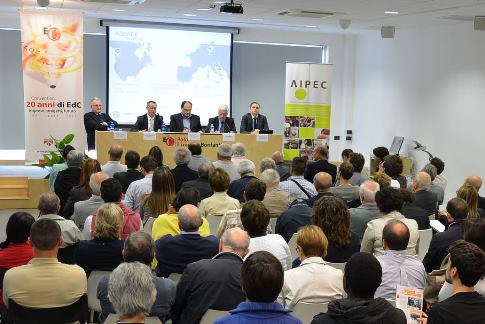
Mar 21, 2016 | Focolare Worldwide
 “I’ve been running the family business for more than 40 years,” says Livio from the Italian Province of Cuneo (Italy). “Along with me there is my wife, our 4 children and my sister. Along with our 28 employees we deal in galvanic treatment of dumbells, tanks, motorcycles, mufflers, automobile parts, fitness equipment, and so on. The chrome coating is good for appearance, but most of all for preventing rust. For several years now our business has been applying the values of the Economy of Communion, a project which joins the need to generate profit with the aspiration to help the needy and put people at the centre of things. This goes for employees, between shareholders, with clients, providers and competitors. Following a long period of almost constant growth, we were unexpectedly hit by the serious crisis that still affects many companies like ours. Of course, we’re not going to give up, and we continue to do all we can to find new clientele – and we never stop believing in this new way of understanding the economy.
“I’ve been running the family business for more than 40 years,” says Livio from the Italian Province of Cuneo (Italy). “Along with me there is my wife, our 4 children and my sister. Along with our 28 employees we deal in galvanic treatment of dumbells, tanks, motorcycles, mufflers, automobile parts, fitness equipment, and so on. The chrome coating is good for appearance, but most of all for preventing rust. For several years now our business has been applying the values of the Economy of Communion, a project which joins the need to generate profit with the aspiration to help the needy and put people at the centre of things. This goes for employees, between shareholders, with clients, providers and competitors. Following a long period of almost constant growth, we were unexpectedly hit by the serious crisis that still affects many companies like ours. Of course, we’re not going to give up, and we continue to do all we can to find new clientele – and we never stop believing in this new way of understanding the economy. 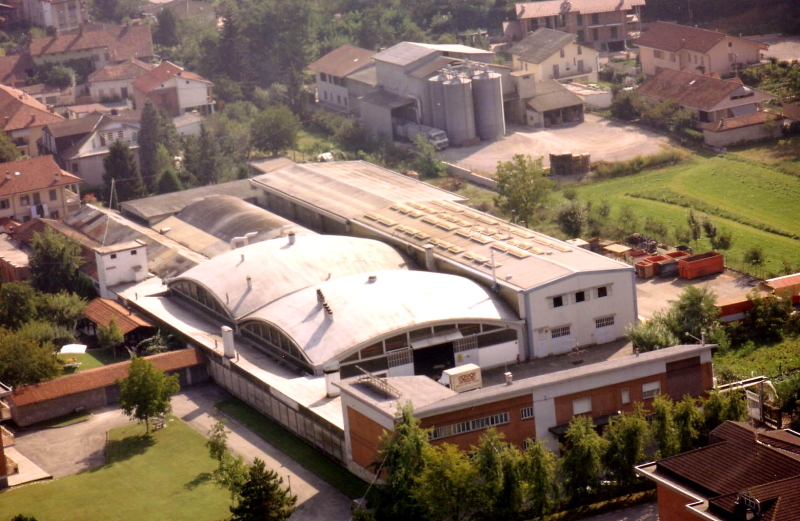 In 2014 we welcomed three members of an important German automotive group who were potential customers. After the technical presentation of the company by our children and other collaborators, seeing that the visitors were so impressed and so curious we spoke to them about the Economy of Communion and its growth throughout the world. We also told them about the AIEC in Europe and AIPEC in Italy (of which I’m the president): two business owners associations whose members run their businesses inspired by the “culture of giving”. Eventually, while proposing an interesting job offer they remarked: ‘We’re surprised that despite the fact that your production company has such limited forces, you were able to create a galvanic process which is actually quite complex’. The processing systems and many years of hard work certainly had something to do with it, but also the stories of some of our experiences during the lull periods when we didn’t have much business and hired several migrants and two young people who were in the midst of serious problems, and of everyone’s commitment to live in a relationship of brotherhood also outside working hours. We think that another factor was our way of giving priority to relationships in a healthy detachment from wanting to do business at any cost.”
In 2014 we welcomed three members of an important German automotive group who were potential customers. After the technical presentation of the company by our children and other collaborators, seeing that the visitors were so impressed and so curious we spoke to them about the Economy of Communion and its growth throughout the world. We also told them about the AIEC in Europe and AIPEC in Italy (of which I’m the president): two business owners associations whose members run their businesses inspired by the “culture of giving”. Eventually, while proposing an interesting job offer they remarked: ‘We’re surprised that despite the fact that your production company has such limited forces, you were able to create a galvanic process which is actually quite complex’. The processing systems and many years of hard work certainly had something to do with it, but also the stories of some of our experiences during the lull periods when we didn’t have much business and hired several migrants and two young people who were in the midst of serious problems, and of everyone’s commitment to live in a relationship of brotherhood also outside working hours. We think that another factor was our way of giving priority to relationships in a healthy detachment from wanting to do business at any cost.” 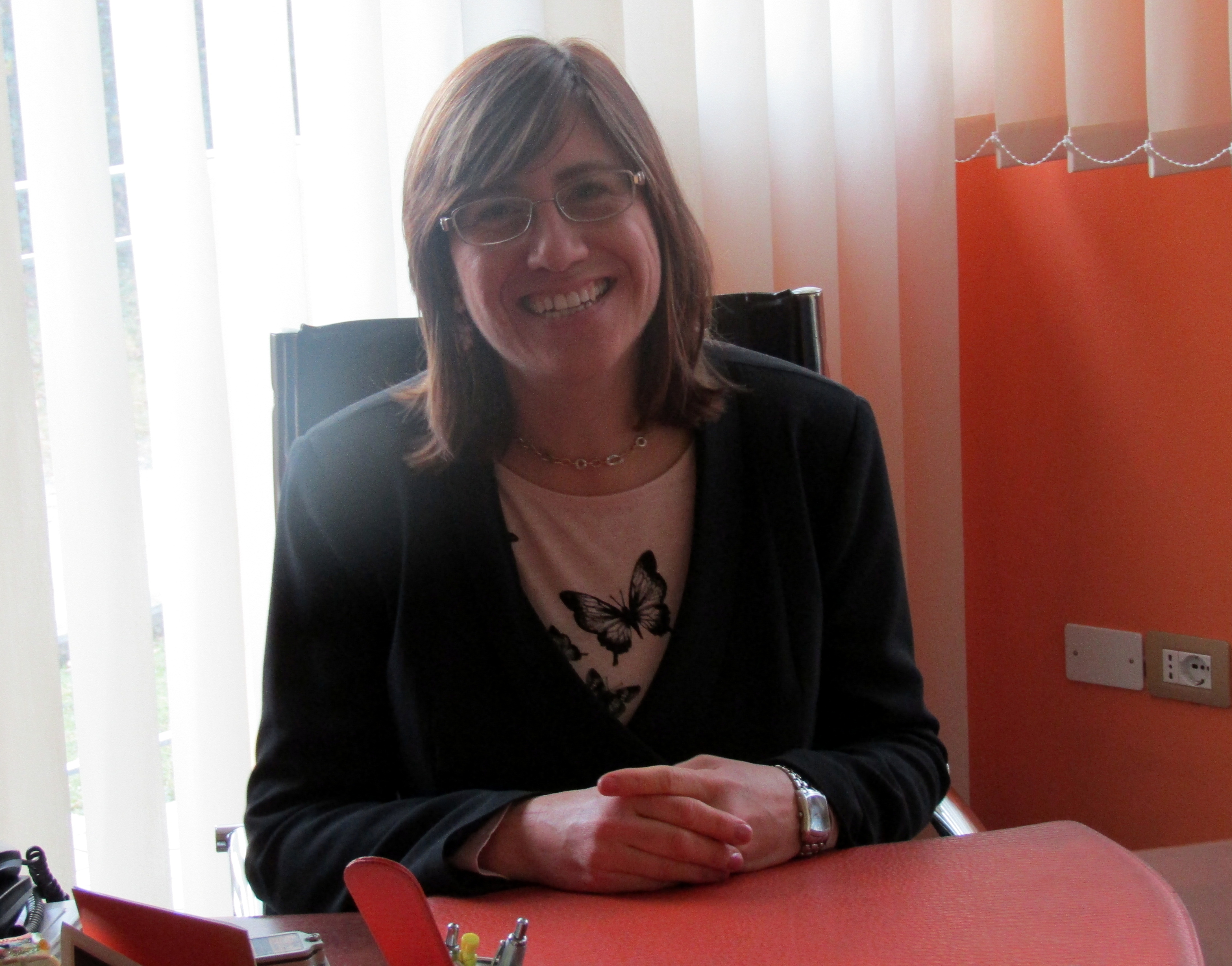 “I’m director of a mechanical manufacturing company,” says Enrica from Turin, Italy. “We also have 28 employees. My father, whom I soon began to work for, conveyed to me the values of sharing, the spirit of sacrifce and the commitment to always improve. In the year 2000 orders were reduced to a minimum, but no one was fired and, at Christmas, because of the lack of liquidity it was decided that we would pay the Christmas Bonuses from our own pockets. In 2003 we got a foreign job offer. My father and I jumped on it, involving and empowering all the employees. We worked very much to gain the trust of banks, suppliers, clientele and establishing compactness. Three months later, we were overwhelmed by the crisis and by my father’s sudden illness. Thanks be to God, I was able to count on the support of many people and, after a year and a half of temporary layoffs, all the employees returned to the business. But I was tired and opressed by it all.
“I’m director of a mechanical manufacturing company,” says Enrica from Turin, Italy. “We also have 28 employees. My father, whom I soon began to work for, conveyed to me the values of sharing, the spirit of sacrifce and the commitment to always improve. In the year 2000 orders were reduced to a minimum, but no one was fired and, at Christmas, because of the lack of liquidity it was decided that we would pay the Christmas Bonuses from our own pockets. In 2003 we got a foreign job offer. My father and I jumped on it, involving and empowering all the employees. We worked very much to gain the trust of banks, suppliers, clientele and establishing compactness. Three months later, we were overwhelmed by the crisis and by my father’s sudden illness. Thanks be to God, I was able to count on the support of many people and, after a year and a half of temporary layoffs, all the employees returned to the business. But I was tired and opressed by it all.  At that point I came to know about AIPEC, which was established in 2012, and about these business owners who I felt close to because of their working style and their ‘culture of giving’. That’s how I began to attend their meetings, comparing myself to them and to various social categories. I felt welcomed, encouraged, instructed – to the point that I recently accepted a position in directing AIPEC. Together with the others who were elected, I continue to discover the beauty and the responsibility involved in run a business in which you do your best to maintain a stable economy and at the same time share in relationships, take a listening position and offer concrete support. Because a gift given bears fruit, and it is fruit that lasts.”
At that point I came to know about AIPEC, which was established in 2012, and about these business owners who I felt close to because of their working style and their ‘culture of giving’. That’s how I began to attend their meetings, comparing myself to them and to various social categories. I felt welcomed, encouraged, instructed – to the point that I recently accepted a position in directing AIPEC. Together with the others who were elected, I continue to discover the beauty and the responsibility involved in run a business in which you do your best to maintain a stable economy and at the same time share in relationships, take a listening position and offer concrete support. Because a gift given bears fruit, and it is fruit that lasts.”
![Maria Voce: the culture of dialogue that enables peace]()
Mar 20, 2016 | Non categorizzato
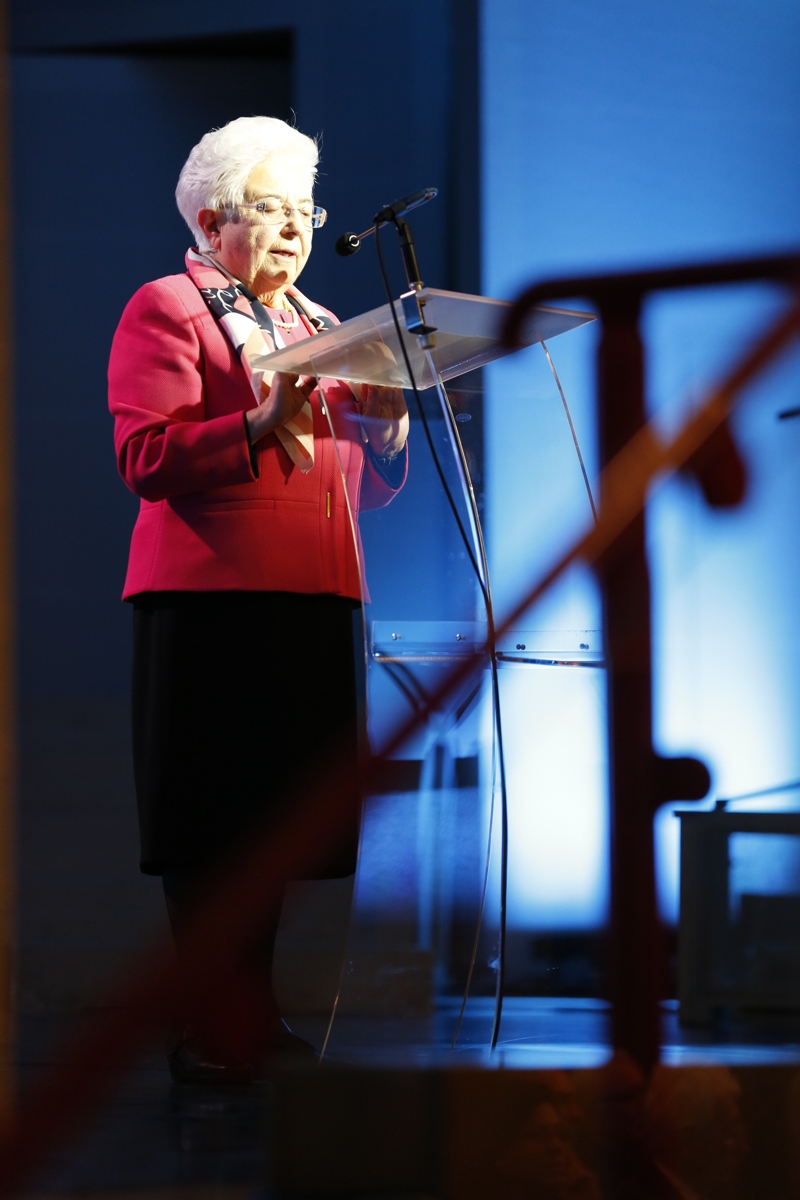 “What we wish to do today is not so much remember as to review together, after 20 years, the content and method which Chiara outlined at UNESCO on the 17th December 1996 on a subject which is more than ever relevant to international relations, education for peace. On that occasion UNESCO conferred on the founder of the Focolare Movement a special prize awarded to those whose work contributes to creating pathways and conditions whereby peace may become something real.” Maria Voce, the President of the Focolare, recalled that event in her talk given on 12th March at Castel Gandolfo, during the afternoon dedicated to Chiara Lubich and peace, in the presence of ambassadors and leading figures in the worlds of culture and Christian unity. “Looking at that occasion again today, it seems more than ever relevant: what could be more important than education to reach this kind of goal? Current affairs, what we see before us day after day, portray images of a peace that has been violated and often scorned. It seems almost as though, from the daily life of individuals right up to international level, “living in peace” is not part of what the generations living in the Third Millennium do. Yet how often do we appeal for peace or try to reconnect the broken strands of relationships among individuals, peoples and states? We cannot deny that we find it easier to put up barriers, perhaps thinking we are defending ourselves, instead of working to build unity in relations, among ideas, in politics, in economics and between religious viewpoints. Hence peace escapes us and is ever more distant. At UNESCO Headquarters, Chiara Lubich put forward a method for education to peace, the spirituality of unity, which is a new lifestyle that can overcome divisions among individuals, communities and peoples and so can help restore or consolidate peace.
“What we wish to do today is not so much remember as to review together, after 20 years, the content and method which Chiara outlined at UNESCO on the 17th December 1996 on a subject which is more than ever relevant to international relations, education for peace. On that occasion UNESCO conferred on the founder of the Focolare Movement a special prize awarded to those whose work contributes to creating pathways and conditions whereby peace may become something real.” Maria Voce, the President of the Focolare, recalled that event in her talk given on 12th March at Castel Gandolfo, during the afternoon dedicated to Chiara Lubich and peace, in the presence of ambassadors and leading figures in the worlds of culture and Christian unity. “Looking at that occasion again today, it seems more than ever relevant: what could be more important than education to reach this kind of goal? Current affairs, what we see before us day after day, portray images of a peace that has been violated and often scorned. It seems almost as though, from the daily life of individuals right up to international level, “living in peace” is not part of what the generations living in the Third Millennium do. Yet how often do we appeal for peace or try to reconnect the broken strands of relationships among individuals, peoples and states? We cannot deny that we find it easier to put up barriers, perhaps thinking we are defending ourselves, instead of working to build unity in relations, among ideas, in politics, in economics and between religious viewpoints. Hence peace escapes us and is ever more distant. At UNESCO Headquarters, Chiara Lubich put forward a method for education to peace, the spirituality of unity, which is a new lifestyle that can overcome divisions among individuals, communities and peoples and so can help restore or consolidate peace. 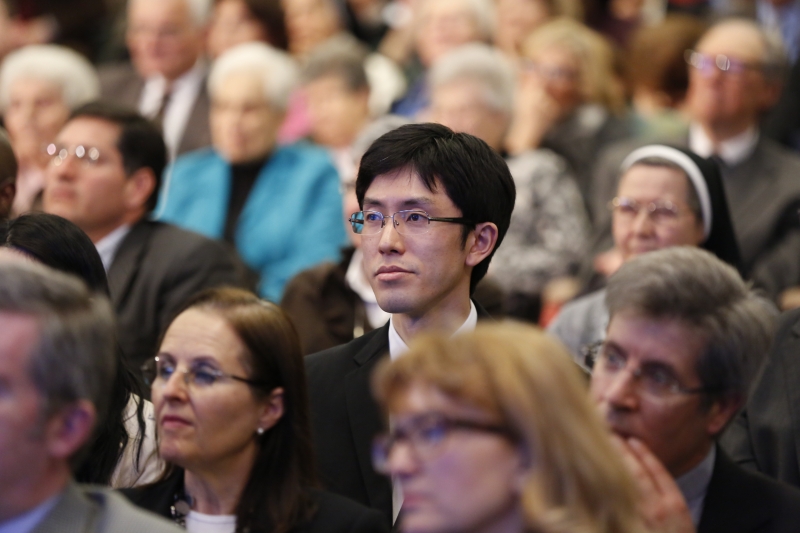 This spirituality is lived by people from very different backgrounds and experiences: Christians of different Churches, believers of different religions and people of different cultures. All of them are motivated by wanting to enable humankind become one single family; all know they must face problems and situations that arise daily at every level and in every field; all are directed towards being – at least wherever they are – and I quote Chiara “seeds of a new people, of a world at peace, with greater solidarity especially towards the least and the poorest; to be seeds of a more united world” (Chiara Lubich’s talk at UNESCO, 17.12.1996) in which it will be possible not only to call one another brothers and sisters but truly be so. If this is the method, what is the secret of its success? It is a secret which Chiara herself defined as the art of loving, which is “It means being the first to love, without expecting the other person to love us in return. It means knowing how to ‘make ourselves one’ with others, that is, to identify with their burdens, their thoughts, their sufferings, their joys. But, if this love of neighbour is lived out by more than one person, it becomes mutual. (Ibid.). Reciprocity: it is a word which carries much weight in international relations but is often limited to ensuring a truce in conflicts, not in preventing them or resolving them. Those who have responsibility and key roles in the international community know very well how difficult negotiations can be and how many obstacles are encountered before reaching agreements that satisfy all parties. To consider love as a negotiating tool in regard to the great objective of peace would allow us to feel part of one family, to live an authentic dimension of fraternity without restricting it merely to coexistence or forced shared living, but enabling fraternity to be open to the needs of the weakest and the poorest, of those who are excluded from political engagement or from a type of economics whose only law is profit. We need to love, then, and work for others and with others; so as to help overcome the barriers posed by conflicting interests, by a show of power, by inequality in levels of development, or lack of access to the market or technology. When speaking about peace education we find ourselves facing the great challenge of applying a method, that of unity as the fruit of mutual love, in the fragmented context currently enveloping almost all spheres of our daily life. Chiara Lubich was aware of this and for this reason offered the Representatives of Member States at UNESCO almost the key for a step change, a good practice, in the language used in international relations. In fact she said: «Nothing good, useful, or fruitful can be accomplished in the world without accepting troubles, suffering, in a word, without the cross.” (Ibid.). Commitment to peace is difficult to achieve if we are not ready to set aside our certainties and our comfort, so as to set out on new and unexplored paths; becoming creative without improvising; hearing to the voices of those who call for peace and identifying places where it can actually be achieved. … Twenty years ago, speaking at UNESCO, Chiara pointed out that love was “the most powerful instrument that can give humanity its highest dignity: that of feeling not so much that we are a collection of peoples, alongside one another and often in conflict with one another, but instead that we are one single people.” Today too even though we face many recurring difficulties, this is the ideal we wish to achieve through everyone’s contribution.”
This spirituality is lived by people from very different backgrounds and experiences: Christians of different Churches, believers of different religions and people of different cultures. All of them are motivated by wanting to enable humankind become one single family; all know they must face problems and situations that arise daily at every level and in every field; all are directed towards being – at least wherever they are – and I quote Chiara “seeds of a new people, of a world at peace, with greater solidarity especially towards the least and the poorest; to be seeds of a more united world” (Chiara Lubich’s talk at UNESCO, 17.12.1996) in which it will be possible not only to call one another brothers and sisters but truly be so. If this is the method, what is the secret of its success? It is a secret which Chiara herself defined as the art of loving, which is “It means being the first to love, without expecting the other person to love us in return. It means knowing how to ‘make ourselves one’ with others, that is, to identify with their burdens, their thoughts, their sufferings, their joys. But, if this love of neighbour is lived out by more than one person, it becomes mutual. (Ibid.). Reciprocity: it is a word which carries much weight in international relations but is often limited to ensuring a truce in conflicts, not in preventing them or resolving them. Those who have responsibility and key roles in the international community know very well how difficult negotiations can be and how many obstacles are encountered before reaching agreements that satisfy all parties. To consider love as a negotiating tool in regard to the great objective of peace would allow us to feel part of one family, to live an authentic dimension of fraternity without restricting it merely to coexistence or forced shared living, but enabling fraternity to be open to the needs of the weakest and the poorest, of those who are excluded from political engagement or from a type of economics whose only law is profit. We need to love, then, and work for others and with others; so as to help overcome the barriers posed by conflicting interests, by a show of power, by inequality in levels of development, or lack of access to the market or technology. When speaking about peace education we find ourselves facing the great challenge of applying a method, that of unity as the fruit of mutual love, in the fragmented context currently enveloping almost all spheres of our daily life. Chiara Lubich was aware of this and for this reason offered the Representatives of Member States at UNESCO almost the key for a step change, a good practice, in the language used in international relations. In fact she said: «Nothing good, useful, or fruitful can be accomplished in the world without accepting troubles, suffering, in a word, without the cross.” (Ibid.). Commitment to peace is difficult to achieve if we are not ready to set aside our certainties and our comfort, so as to set out on new and unexplored paths; becoming creative without improvising; hearing to the voices of those who call for peace and identifying places where it can actually be achieved. … Twenty years ago, speaking at UNESCO, Chiara pointed out that love was “the most powerful instrument that can give humanity its highest dignity: that of feeling not so much that we are a collection of peoples, alongside one another and often in conflict with one another, but instead that we are one single people.” Today too even though we face many recurring difficulties, this is the ideal we wish to achieve through everyone’s contribution.”
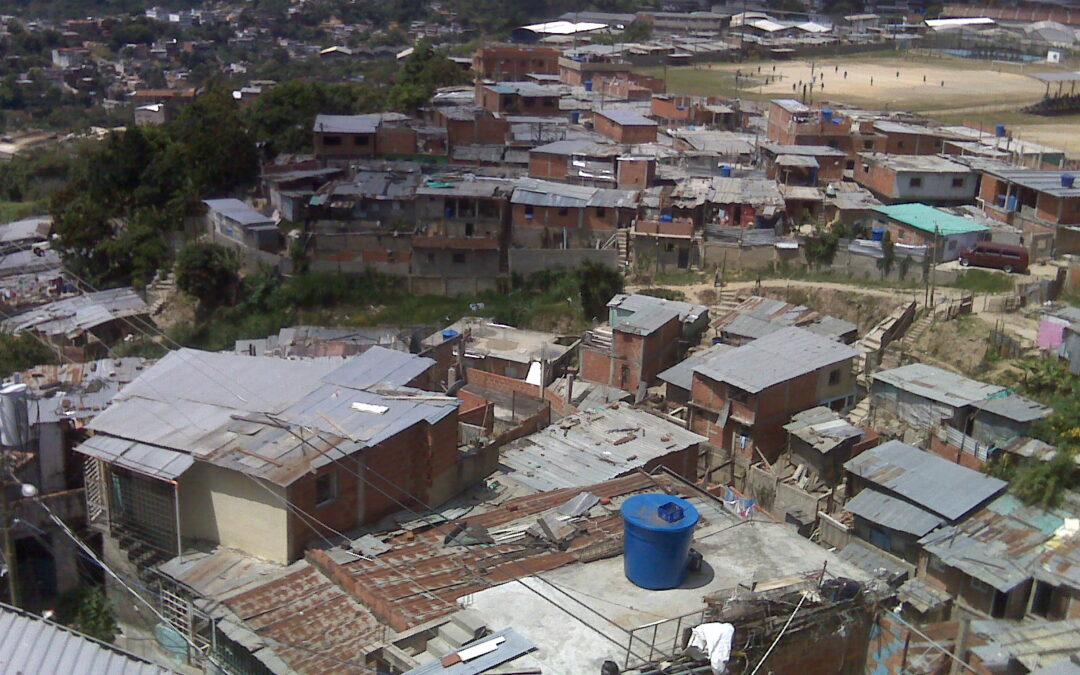
Mar 19, 2016 | Focolare Worldwide, Senza categoria
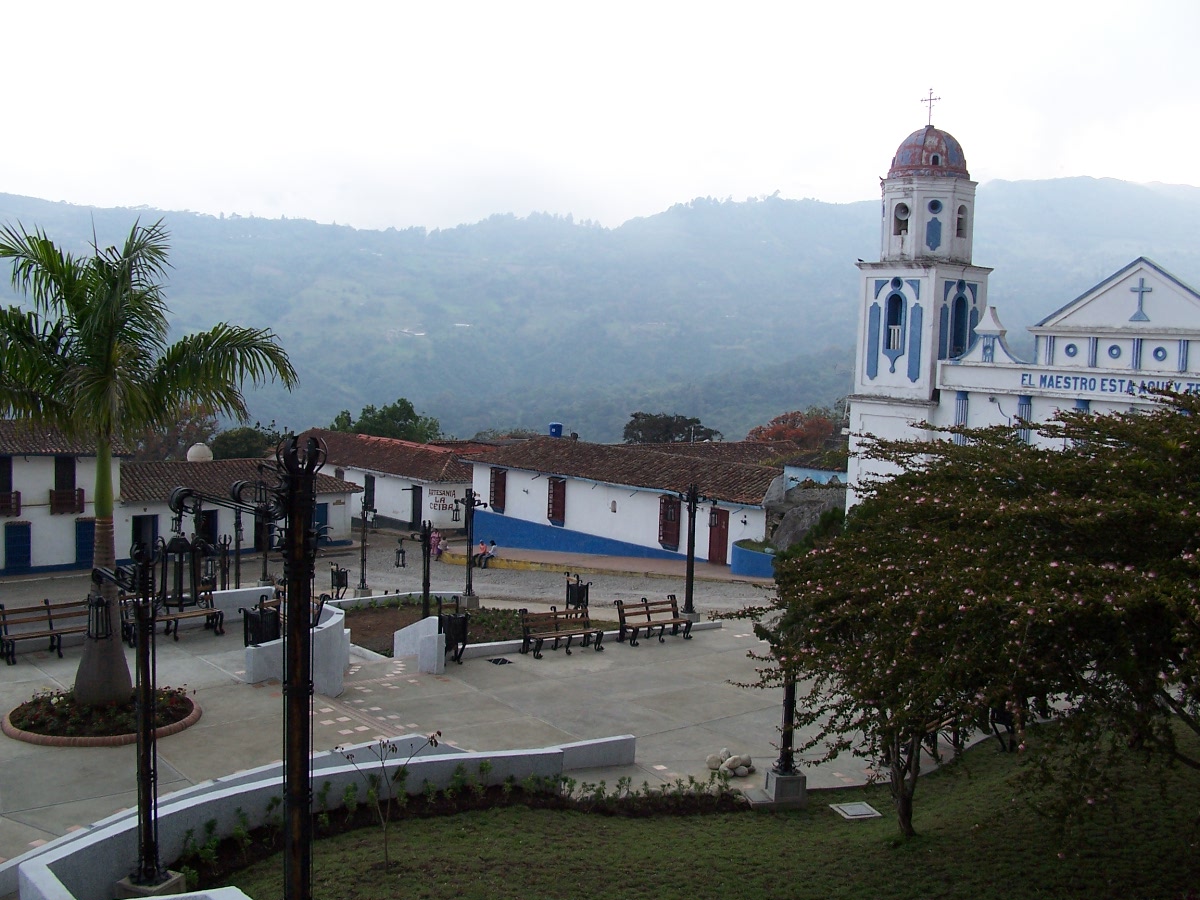 “In such a fractured and divided Venezuela we want to live the Gospel radically, wherever we work, or study, to build bridges of unity and peace. In the town council for example, there are 3 people who live the spirituality of unity, one belonging to the Government’s party and 2 in the opposing parties, and yet they respect and help one another.” One of them Ophelia, of the Focolare community speaks about a marginal district of the city of Valencia called Colinas de Guacamaya “A friend of mine asked me to accompany her to the doctor’s – she said and so the long waiting line started for the medicine: an old man in search of his treatment for diabetes, another asking for headache pills, a boy at the drug store asking for a painkiller. Just one pill, but he didn’t have enough money to pay for it.” But Ofelia had a bag of medicine in her car which she always brings along with her, with medicines that arrived from “Divine Providence”, as she herself recounts, and could offer them for free to all those who were there. The looks on their faces were of incredulity and gratitude. Betty and Orlando have 4 kids and they transferred to the “Little Cloud” Mariapolis Centre,in the district of Junquito, close to Caracas. “To serve those in need– Betty recounts –, we had lost touch with some members of the community so we organized the social pastoral. We wanted to respond to the need of food, clothing and homes for some families of the parish. So with the help of the town council, we managed to build a house fit to host a poor elderly man.” “The current social crisis, with the high in security indices the country is beset with, opened our hearts even more to the needs of the families in our community who live in fear of even losing their lives. We found out about a boy’s father who was in serious conditions due to a gunshot wound. in his head. We rushed to the hospital where he was admitted at the intensive care and died a few days later. We are now continuing to give our concrete love, with care and attention to protect the mother and son, whom we took in with us.”
“In such a fractured and divided Venezuela we want to live the Gospel radically, wherever we work, or study, to build bridges of unity and peace. In the town council for example, there are 3 people who live the spirituality of unity, one belonging to the Government’s party and 2 in the opposing parties, and yet they respect and help one another.” One of them Ophelia, of the Focolare community speaks about a marginal district of the city of Valencia called Colinas de Guacamaya “A friend of mine asked me to accompany her to the doctor’s – she said and so the long waiting line started for the medicine: an old man in search of his treatment for diabetes, another asking for headache pills, a boy at the drug store asking for a painkiller. Just one pill, but he didn’t have enough money to pay for it.” But Ofelia had a bag of medicine in her car which she always brings along with her, with medicines that arrived from “Divine Providence”, as she herself recounts, and could offer them for free to all those who were there. The looks on their faces were of incredulity and gratitude. Betty and Orlando have 4 kids and they transferred to the “Little Cloud” Mariapolis Centre,in the district of Junquito, close to Caracas. “To serve those in need– Betty recounts –, we had lost touch with some members of the community so we organized the social pastoral. We wanted to respond to the need of food, clothing and homes for some families of the parish. So with the help of the town council, we managed to build a house fit to host a poor elderly man.” “The current social crisis, with the high in security indices the country is beset with, opened our hearts even more to the needs of the families in our community who live in fear of even losing their lives. We found out about a boy’s father who was in serious conditions due to a gunshot wound. in his head. We rushed to the hospital where he was admitted at the intensive care and died a few days later. We are now continuing to give our concrete love, with care and attention to protect the mother and son, whom we took in with us.”  “Upon the request of the parish priest – María Carolina of the Junquito community recounts – we went to a rural zone that can be reached only by jeep. The Florida community were waiting for us, and in need of so many material things, and up to a few months earlier did not even have electricity. A community of sacrificed people, dedicated to farming and who walk kilometres to go to Mass once a month. An experience that involved all of us and which started up a communion of goods: from all over clothes, medicine, toys, shoes, food arrived… with trucks filled to the brim with goods but above all, hope, and love for this community. Even if difficulties are not missing, upon our arrival the people came out of their homes, running to meet us with applause, immediately imbuing a family atmosphere!.” The community of Puerto Ayacucho, in the State of Amazzona, is a border zone, inhabited by aborigine communities. They were beset with serious problems: the presence of guerillas, the exploitation of gold, a high rate of single mothers. It had just undergone a painful experience with the death of a boy, Felipe, a member of the Focolare, who had been killed two months earlier by gunshots. This is a frequent event in Venezuela, especially in this region. He had died to save the life of his brother who was wanted by the guerilla. Juan,his best friend, told us that «Felipe had set an appointment to enrol in the catechism class, but he died the day before… Together we had planned a lot for the future.» Felipe’s death had left a mark in this community: a new commitment to live to build peace, give new horizons and hope especially to the youth.
“Upon the request of the parish priest – María Carolina of the Junquito community recounts – we went to a rural zone that can be reached only by jeep. The Florida community were waiting for us, and in need of so many material things, and up to a few months earlier did not even have electricity. A community of sacrificed people, dedicated to farming and who walk kilometres to go to Mass once a month. An experience that involved all of us and which started up a communion of goods: from all over clothes, medicine, toys, shoes, food arrived… with trucks filled to the brim with goods but above all, hope, and love for this community. Even if difficulties are not missing, upon our arrival the people came out of their homes, running to meet us with applause, immediately imbuing a family atmosphere!.” The community of Puerto Ayacucho, in the State of Amazzona, is a border zone, inhabited by aborigine communities. They were beset with serious problems: the presence of guerillas, the exploitation of gold, a high rate of single mothers. It had just undergone a painful experience with the death of a boy, Felipe, a member of the Focolare, who had been killed two months earlier by gunshots. This is a frequent event in Venezuela, especially in this region. He had died to save the life of his brother who was wanted by the guerilla. Juan,his best friend, told us that «Felipe had set an appointment to enrol in the catechism class, but he died the day before… Together we had planned a lot for the future.» Felipe’s death had left a mark in this community: a new commitment to live to build peace, give new horizons and hope especially to the youth.

 “The orientation of the Gospel of St. John, and also the others, converge in the phrase which has lately taken on a deep and infinite meaning for me: “That they all be one, as you Father are in me and I in you, so that the world may believe.” (John 17,21). This is how we should live. […] These are the coordinates of the unity that is particularly dear to me: unity in our parishes, unity in the various services and ministries, unity between the clergy and the laity, and between presbyteries. Unity becomes credible only if it demonstrates that we are not the patrons, but that only He is the Lord. This unity in the context of priestly ministry is something I particularly hold dear. Likewise I must mention unity of the Church, unity with those who are outside the confines of our Roman-Catholic Church, unity among all those who identify themselves with faith in the only God, the Living God and, therefore, with the Jews and Muslims. That unity between the Church and society is where one does not run parallel to or contrast with the other, but where the Church and society enter into a mutual relationship, bringing to light that unity which God gives for leavening society, with that leaven which makes man free. It is unity that makes man fully man, since he can become man in the full sense only where God has the right to be fully God, and thus can endow us with all He wishes to give us. And He wants to give us nothing less than His intimate mystery: Trinitarian unity. But this is not a simple plan, since we do not progress much only with plans. Instead it has to become life […]. Also I have to start living this unity. It is due to this that I trust the fact that all of you dear brothers and sisters can help me, and that we can do so mutually.” Bishop Klaus Hemmerle Cited from: W. Hagemann, Klaus Hemmerle. Innamorato della Parola di Dio. (In love with the Word of God), Città Nuova ed., Roma 2013, pp. 337-338
“The orientation of the Gospel of St. John, and also the others, converge in the phrase which has lately taken on a deep and infinite meaning for me: “That they all be one, as you Father are in me and I in you, so that the world may believe.” (John 17,21). This is how we should live. […] These are the coordinates of the unity that is particularly dear to me: unity in our parishes, unity in the various services and ministries, unity between the clergy and the laity, and between presbyteries. Unity becomes credible only if it demonstrates that we are not the patrons, but that only He is the Lord. This unity in the context of priestly ministry is something I particularly hold dear. Likewise I must mention unity of the Church, unity with those who are outside the confines of our Roman-Catholic Church, unity among all those who identify themselves with faith in the only God, the Living God and, therefore, with the Jews and Muslims. That unity between the Church and society is where one does not run parallel to or contrast with the other, but where the Church and society enter into a mutual relationship, bringing to light that unity which God gives for leavening society, with that leaven which makes man free. It is unity that makes man fully man, since he can become man in the full sense only where God has the right to be fully God, and thus can endow us with all He wishes to give us. And He wants to give us nothing less than His intimate mystery: Trinitarian unity. But this is not a simple plan, since we do not progress much only with plans. Instead it has to become life […]. Also I have to start living this unity. It is due to this that I trust the fact that all of you dear brothers and sisters can help me, and that we can do so mutually.” Bishop Klaus Hemmerle Cited from: W. Hagemann, Klaus Hemmerle. Innamorato della Parola di Dio. (In love with the Word of God), Città Nuova ed., Roma 2013, pp. 337-338














 “What we wish to do today is not so much remember as to review together, after 20 years, the content and method which Chiara outlined at UNESCO on the 17th December 1996 on a subject which is more than ever relevant to international relations, education for peace. On that occasion UNESCO conferred on the founder of the Focolare Movement a special prize awarded to those whose work contributes to creating pathways and conditions whereby peace may become something real.” Maria Voce, the President of the Focolare, recalled that event in her talk given on 12th March at Castel Gandolfo, during
“What we wish to do today is not so much remember as to review together, after 20 years, the content and method which Chiara outlined at UNESCO on the 17th December 1996 on a subject which is more than ever relevant to international relations, education for peace. On that occasion UNESCO conferred on the founder of the Focolare Movement a special prize awarded to those whose work contributes to creating pathways and conditions whereby peace may become something real.” Maria Voce, the President of the Focolare, recalled that event in her talk given on 12th March at Castel Gandolfo, during 

